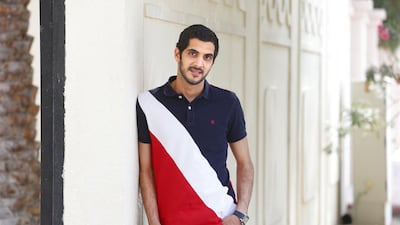DUBAI // Child car seats may be compulsory by law as early as next year.
The issue is being discussed at federal level and a legal requirement is the next step, said Hussain Al Banna of the Roads and Transport Authority in Dubai.
“We are running many education programmes for mothers and soon-to-be mothers on child safety and the need to use a child car seat,” he said.
“Making car seats mandatory is the next step. A number of authorities are currently reviewing the federal traffic law — I think it will be made mandatory in the very near future.”
There have been numerous calls for a change to the law to make child car restraints compulsory.
In 2012, the Ministry of Interior renewed efforts to reduce the number of children hurt or killed on the roads by calling for change.
Road-safety experts made similar calls in December last year, when Abu Dhabi Police said compulsory car seats were being planned, and one month earlier a World Health Organisation director said better enforcement of road-safety measures was required.
Only this week one of the recommendations of the first International Road Traffic Accident Conference in Abu Dhabi concluded that no newborn should leave hospital without a car seat in the vehicle.
Traffic accidents are the leading cause of death for children under 14 and everything must be done to protect them, said Thomas Edelmann, founder of the website Road Safety UAE.
“We know there is a lack of discipline when it comes to buckling up kids and we all have witnessed kids roaming around freely in the car,” he said.
“There is a misconception of parents who do not want to ‘inconvenience’ kids by strapping them in, but the truth is simple: If your love your kids, buckle them up.”
For smaller children, the use of either child seats or booster seats is non-negotiable to protect them in the event of an accident.
“And not just the pure presence of those life saving devices in the car is non-negotiable, but their actual use. When it comes to kids in the car, the motto is ‘No belt - no start’,” Mr Edelmann said.
Glenn Havinoviski, a transport specialist in Abu Dhabi, said: “Child safety seats are mandatory in all of Europe and North America.
“It should not only be mandatory but rigidly enforced for all. There are too many who drive around with children in vehicles and all of them are unbelted.
“I have seen parents lifting kids through the sunroof or dangling them out of windows. It is indeed very dangerous.”
At Gulf Traffic Week’s awards event, Mr Al Banna said Dubai had implemented a number of policies to reduce road deaths from 21.9 per 100,000 people in 2006 to 4.4 in 2013.
“Road safety is not just the responsibility of one party. It is everyone’s responsibility, from the government and schools to the parents,” he said.
Fifteen per cent of accidents in Dubai are caused by drivers aged 18 to 23. “Our numbers have improved since 2006 but still more than 30 per cent of accidents are caused by young people. We are focusing our education programmes on 1 to 18-year-olds. We will looking at smart solutions utilising applications and games.”
The next target, he said, was university students, before the RTA shared its programmes with other emirates.
One crash victim wants his story to be used as a deterrent.
Marwan Mohammed, 24, had been enjoying a barbecue on a yacht with friends and the next thing he knew he was in the intensive care unit at Rashid Hospital attached to a life-support machine with three tubes controlling his internal bleeding.
“I was confused. My family were there telling me I had an accident but I didn’t believe them, I didn’t remember having an accident,” the young Emirati said.
Mr Mohammed was driving home at 1am, sleep deprived and speeding at 160kph on Hessa Street, near Tecom, in Dubai when his 4x4 rolled off an overpass and continued for 135 metres through a steel boundary fence.
He broke his leg and hip, dislocated his shoulder, suffered internal bleeding in his lungs, kidneys and stomach, and permanently damaged his spinal nerve. He underwent four major operations and doctors were not sure if he would walk again.
Six months later Mr Mohammed is sharing his story with young people in schools and at road-safety events.
“I don’t like talking about it so people can feel sorry for me, that’s not what I’m here for,” he said.
“I want to get to everyone on the road and tell them to be more careful. I want them to learn from my mistakes and the mistakes of others. Don’t let it happen to you.
“At least make sure you’re always wearing a seat belt. It not just about your safety, but everyone’s safety on the road.”
malkhan@thenational.ae
* Additional reporting by Ramona Ruiz

